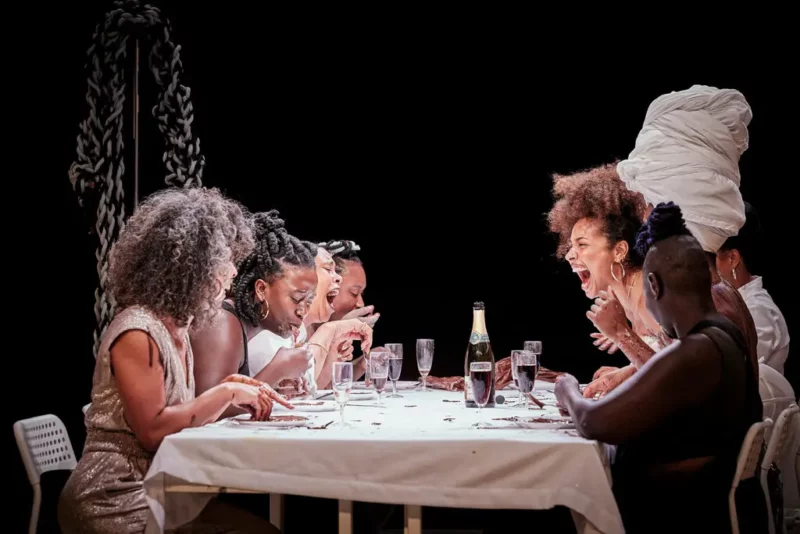A Play About Black Women’s Experiences, Met With Violence
Share
Explore Our Galleries
Breaking News!
Today's news and culture by Black and other reporters in the Black and mainstream media.
Ways to Support ABHM?
By Laura Cappelle, New York Times
Rébecca Chaillon’s “Carte Noire Named Desire” provoked harassment in France this summer, leading one actor to pull out of a new run in Paris

One performer is missing from the current Parisian run of Rébecca Chaillon’s “Carte Noire Named Desire,” an arresting show about the experiences of Black women in France. When the actors gathered onstage for a dinner scene at the Odéon–Théâtre de l’Europe this week, Fatou Siby’s chair remained empty, and a monologue inspired by her life was delivered instead by a guest artist.
The reason for Siby’s absence? She and other members of the all-Black cast were targets of racist attacks after “Carte Noire” played this summer at the Avignon Festival, which followed widespread protests in France over the police shooting of Nahel M., a 17-year-old of North African descent.
“I need to protect myself,” Siby told the French news site Mediapart of her decision to withdraw from the Paris performances.
[…]
According to Mediapart, one male audience member forcefully twisted Siby’s arm as she performed the scene. Others physically hit performers, called them “dictators” and implied they didn’t belong in France. In the days that followed, Siby told Mediapart, an audience member accosted her and her child on the street in Avignon. Since the incidents became public — in a statement, the Avignon Festival described them as “an outpouring of hate” — Chaillon and her team have also been cyber-harassed and become the subject of far-right pundits.
Laura Cappelle reacts to this news.
Learn about other anti-black violence in our online exhibits.
Don’t forget to check out more breaking Black news.









Comments Are Welcome
Note: We moderate submissions in order to create a space for meaningful dialogue, a space where museum visitors – adults and youth –– can exchange informed, thoughtful, and relevant comments that add value to our exhibits.
Racial slurs, personal attacks, obscenity, profanity, and SHOUTING do not meet the above standard. Such comments are posted in the exhibit Hateful Speech. Commercial promotions, impersonations, and incoherent comments likewise fail to meet our goals, so will not be posted. Submissions longer than 120 words will be shortened.
See our full Comments Policy here.